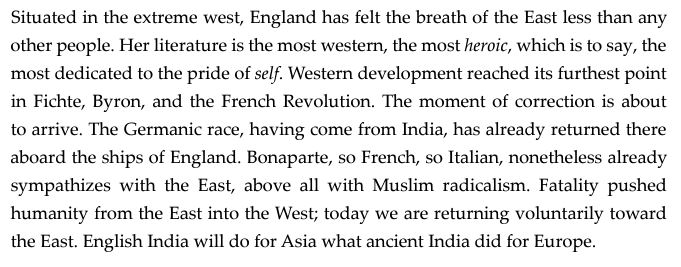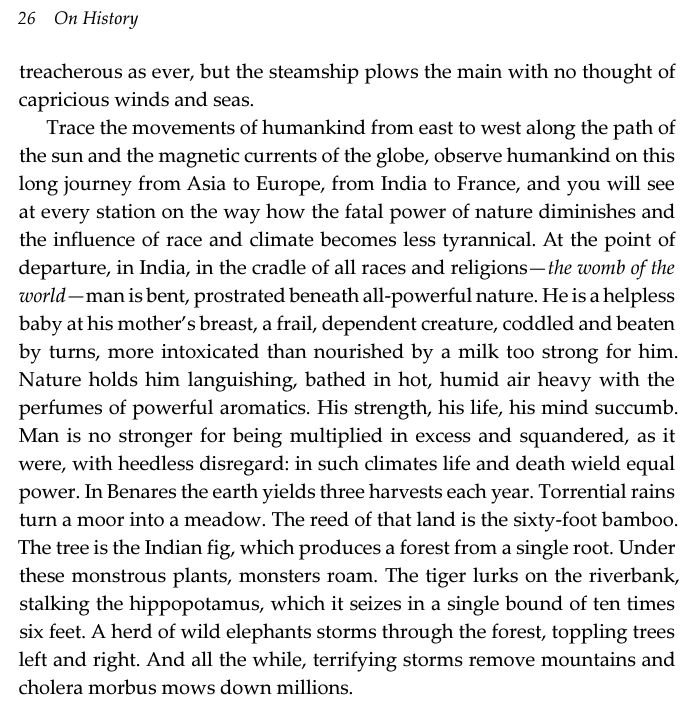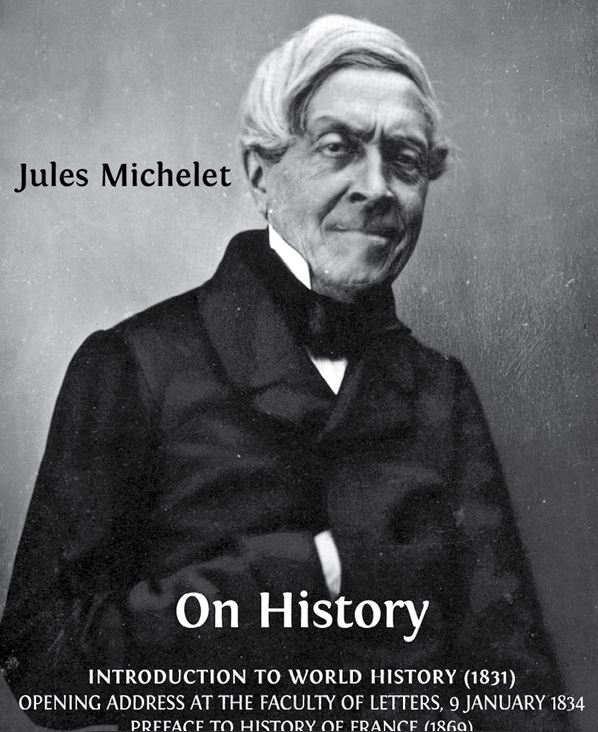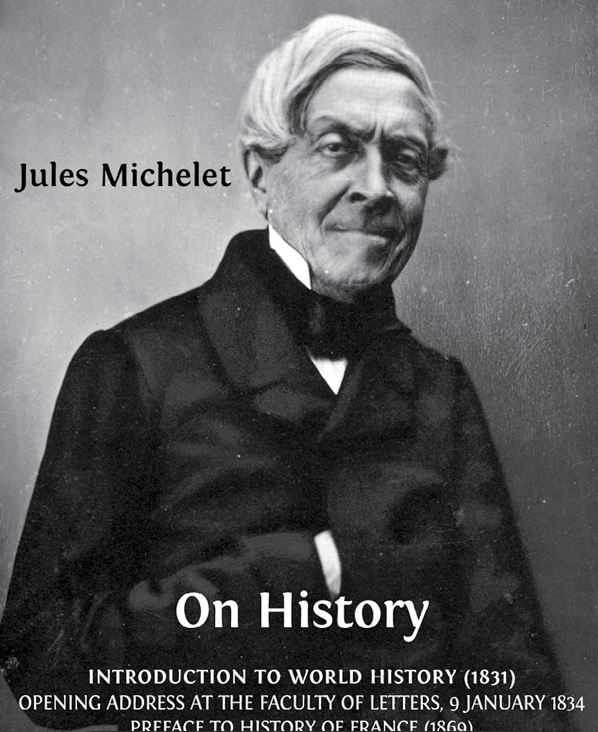“Trace the movements of humankind from east to west along the path of the sun and the magnetic currents of the globe, observe humankind on this long journey from Asia to Europe, from India to France, and you will see at every station on the way how the fatal power of nature diminishes and the influence of race and climate becomes less tyrannical. At the point of departure, in India, in the cradle of all races and religions—the womb of the world.”

PREFACE
Their high genius consists in having from the very first created the type of things essential and vital to humanity.
The primeval India of the Vedas gives us the family in that natural purity and incomparable nobleness which no age has surpassed.
Persia gives us the lesson of heroic labor, in that greatness, strength, and creative virtue which our own century, though powerful, might envy.
Greece, besides her arts, possessed the greatest of them all, the art of making man. Wonderful power, enormously fruitful, which lords it over, and sets at nought all that has been done afterward.
If man had not had betimes these three causes of life — breathing, circulation, and assimilation — he certainly could not have subsisted.
If, from the most ancient time, man had not possessed his great social instruments — home, labor, education — he could not have endured. Society, and even the individual, would have perished.
Therefore its natural types have existed betimes and in a wonderful and incomparable beauty.
Here we have purity, strength, light, innocence. The whole is INFANCY, but there is nothing greater than this.
Come, girls and boys, take boldly the Bibles of light. Everything is there wholesome and very pure.
The purest of those Bibles, the Avesta, is a ray of sunshine.
Homer, Aeschylus, together with the great heroic myths, are full of young life — the vigorous sap of March, the effulgent azure of April.
The dawn is in the Vedas. In the Ramayana — excepting five or six pages of silly, modern interpolation — there is a delightful evening, where all the infancies, the maternities of Nature, spirits, flowers, trees, and beasts sport together and bewitch the heart.
The gloomy genius of the south, through Memphis, Carthage, Tyre, and Judea, quite naturally contrasted, and set itself against the Trinity of light. Egpyt in its monuments, Judea in its Scriptures, have written down their Bibles, which are gloomy and of profound meaning.
The sons of light had opened life gloriously and made it fruitful. But the sons of Egypt and Judea walked in death. Death and love commingled together work deeply in the worships of Syria, which have been diffused everywhere.
This group of nations is undoubtedly the secondary side, the small half of mankind. Their influence, however, has been great through commerce and the art of writing, through Carthage and Phoenicia, through the Arabian conquest, and still more through the strange conquest which the Jewish Bible has made of so many nations.
This venerated book, in which mankind long sought their religious life, is valuable for historical information rather than for edification. It bears evidently, as might be expected, the marks of many centuries of the different conditions of the Jewish nation, as well as of the various states of mind that inspired it. It is assumed to be dogmatic ; but it cannot be so, because it is very incoherent. The religious and moral principle fluctuates infinitely from Elohim to Jehova. The fatal effects of the fall, the arbitrary election, etc., which are to be found in it on every page, are in violent disagreement with the beautiful chapters of Jeremiah and Ezekiel, who promulgated the Right as we under- stand it at the present time. In its morality there is the same discord. To be sure, the great heart of Isaiah is far, very far from the equivocal skill, and the petty prudence of the so-called books of Solomon. The Bible is strong for and against polygamy and slavery.
The variety and the elasticity of this book has been nevertheless of much use, when the father of a family – a severe Israelite or a staunch Protestant — read certain chosen fragments and expounded them to his family, pervading them with an inspiration which is not always in the text. Who would put this text in the hands of a boy ? What woman, without casting her eyes down, will dare say she has read it throughout? It often presents all at once the unveiled impurity of Syria, and many a time the exquisitely calculated and relished sensuality of gloomy and subtle minds which have gone through everything.
The day in which our kindred Bibles have appeared in the literary world, it has been better observed how much the Jewish Bible belongs to another race. It has a value which will always remain ; but it is dark and full of cumbrous ambiguity — beautiful but unsafe, like the night.
Jerusalem cannot remain, as in the ancient maps, just in the midst — an immense point between Europe, scarcely visible, and Asia Minor — eclipsing all the world beside.
Humanity cannot sit down forever in that landscape of ashes to admire the trees ” which formerly may have been there.” Humanity cannot stay like the thirsty camel, that, after a day of travelling, they lead to a dry torrent, and say, ” Drink, camel, this has been a stream. If you wish to have a sea, hard by there is the Dead Sea, and on its shores there are salt and pebbles for pasturage.”
Coming back from the immense shades of India and the Ramayana, returning from the Tree of Life, where the Avesta, the Shah-Nameh presented me four rivers, the waters of Paradise, — here, I confess, that I am thirsty. I appreciate the desert ; I appreciate Nazareth and the small lakes of Galilea. But, to speak frankly, I am thirsty. I could drink them off at a draught.
Allow rather, allow that mankind, free in their greatness, may go everywhere. Let them drink where their forefathers drank. With their enormous works, their task extended in every direction, their wants of Titan, they have need of much air, much water, and much sky ; nay, the whole sky, all space and light, the infinity of horizons— -the earth for promised land, and the world for Jerusalem.
October i6, 1864.










continue reading




